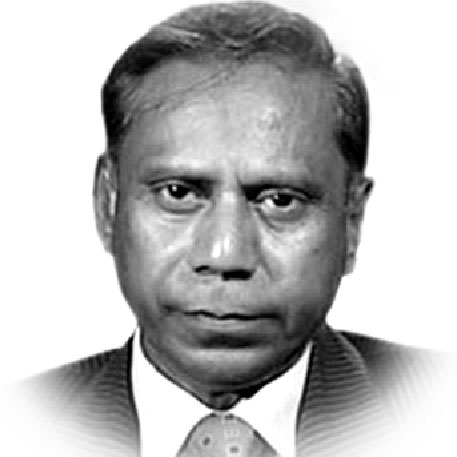Sultan M Hali
IN addition to the Ehsaas meProgram running on the sides, Government of Pakistan is providing relief to the public by taking care of its electricity bills. Economic Coordination Committee (ECC) has approved the package that shall benefit 35 lac small businesses. For those with 5KW commercial or 70 KW industrial connections, the government will pay their electricity bills for up to 3 months after they restart. Consumption data from past year for the same period will be used as a benchmark. Traders who have been patiently bearing losses in time of this pandemic have welcomed this initiative by PTI-led Government as it will help them stabilize after smart lockdown ends. “The sums deposited in their bills will stay valid for utilization up to six months.
Minister for Industries and Production Hammad Azhar, addressing a news conference in Islamabad after a meeting of ECC, announced that this amount has been allocated on the directions of Prime Minister Imran Khan to provide relief to the common people. He stressed that this would help reduce burden on 95 per cent commercial connections and 80 per cent industrial connections. Besides the two schemes introduced, a third one is being processed — a financial aid package for small businesses. To avail the facility under the ‘Chota Karobar-o-Sannat Imdadi Package’, pre-paid electricity bills of three months or total bills during the base period would be required. The period of consumption of the extended financial support will be six months starting from May/June 2020. The ECC chaired by Adviser to Prime Minister on Finance & Revenue Dr Hafeez Shaikh also approved a credit loss subsidy of Rs 30 billion for the Risk Sharing Facility for State Bank of Pakistan’s Refinance Scheme to support employment and prevent lay-off of workers.
Meanwhile, Sindh is least bothered in addressing the concerns of the traders and small-scale businesses while their own oligarchs feed off from profits in wheat cultivation. COVID-19 has struck hard while the people of the province of Sindh took a major blow. It is unfortunate that reportedly, the relief to the people of Sindh has been mostly cosmetic and the funds provided to the Sindh government for disbursement to the poor and needy have not reached the intended people. There have been discrepancies in the rations distributed. Contrarily, some of the political leaders in the province are accused of hoarding wheat for black-marketing. If that were not enough, Sindh professors are passing Xenophobic comments on twitter. Instead of promoting ethnic cooperation, Professors like, Dr Arfana Mallah are asking for implementation of a tax on other ethnic groups doing businesses with Sindh. The statement is not only racist but xenophobic.
At this critical juncture, when the coordinated efforts are necessitated to fight the scourge of the pandemic COVID-19, the provincial government of Sindh and the Federal Government are hurling accusations against each other. The Chief Justice of Pakistan has jumped into the fray, taking both the provincial and Federal Government to task over its handling of the pandemic. While the government is enhancing its concerted efforts, some protagonists are trying to pull it down. Arif Wazir, a PTM (Pashtun Tahafuz Movement), who was released on bail last month, was gunned down outside his house in Wana, South Waziristan. Arif Wazir was an outspoken critic of Pakistan’s military and the establishment’s alleged ties to militants in the region. Since 2018, he had spent more than a year in jail for his activism. He was arrested on April 17 and accused of delivering “anti-Pakistan” remarks during a recent visit to Afghanistan. Days after he was released on bail, he was attacked by gunmen on his way home. PTM members have accused the government of being behind the attack, which they claim is meant to intimidate other members of the Movement.
Defying lockdown restrictions by the government, PTM is politicizing Arif Wazir’s death and is trying to mobilize its followers to reignite its agenda and building up chaos in the region. In a cruel twist of fate, MNA Ali Wazir and ardent PTM promoter from South Waziristan has tested positive for the novel Coronavirus (COVID-19). PTM continues to hold the government responsible for the target killing. Both India and Afghanistan are exploiting the issue and spreading venomous propaganda against the government. Khorasan activists (Tajiks, Uzbeks and Hazaras) have condemned PTM’s false propaganda and are blaming Afghan President Dr Ashraf Ghani’s regime for spreading the pandemic via protest in different regions.
It may be recalled that the first confrontation between Army and PTM activists reportedly occurred on May 26, 2019, when a crowd led by PTM leaders and MNAs Mohsin Dawar and Ali Wazir raided Kharqamar check-post in the Boya area of North Waziristan district in KP, resulting in a clash in which 13 protesters were killed and 25 others, including five soldiers, sustained injuries. In an unrelated development, PML (N), whose leaders are in the dock for corruption charges, are now in thicker soup since the National Accountability Bureau (NAB) has caught another corruption-related fiasco in which the Party’s supremo has been caught red handed for bribing specific newspaper owners and journalists. The leader of the media group has been apprehended but his employees are painting his incarceration as a blow to media freedom. This media group instead of making hue and cry on freedom of speech should ask its corporate overlords as to why they were involved in corruption and made nexus with corrupt rulers.
—The writer is retired PAF Group Captain and a TV talk show host.










